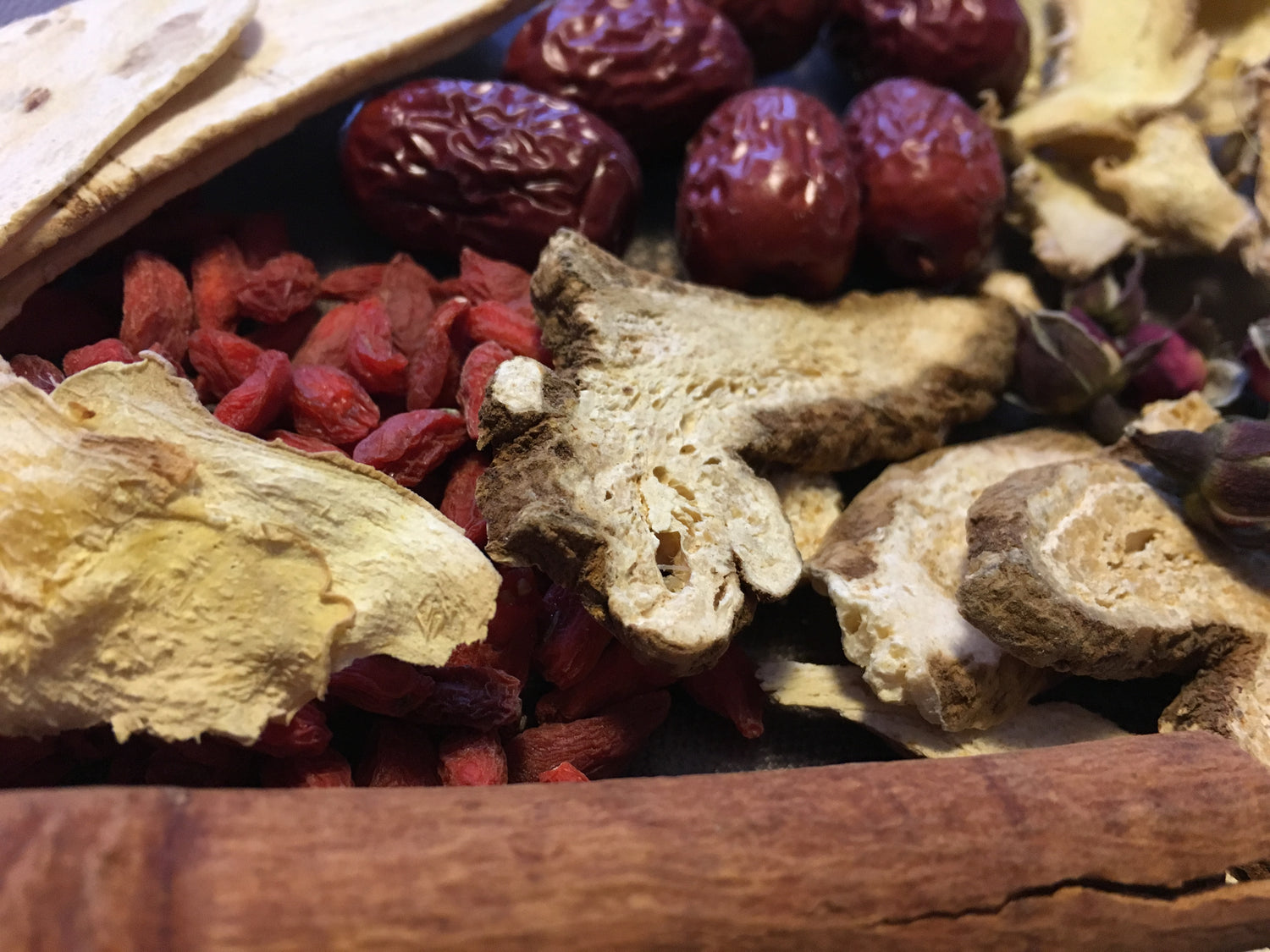Good Herbal Store
Sagee Probiotics
Couldn't load pickup availability
UNDERSTANDING PROBIOTICS AND THE HUMAN MICROBIOME
Armed with the latest microbial research, we now know how important gut health is for our long-term vitality. It influences our immune system, our metabolism, and even how we think and feel.
But with complicated names likeBifidobacterium bifidum and biological concepts that seem confusing at first glance, you might be left with more questions than answers when it comes to probiotics - aka the beneficial bacteria that reside within our bodies.
Still, the science is clear: probiotics can positively affect overall health and day-to-day well-being. So, here’s a simplified introduction to probiotics and why they’re so important for your long-term health.
A peek into the past: the human microbiome
Ever wonder how our ancestors fared without personal medicine cabinets to ease every ailment? While the centuries leading up to our current era were filled with their own set of challenges and were lived quite differently, some of the practices used then actually led to better gut health than we have today.
You see, each person is made up of their own unique microbiome, which houses nearly 100 trillion bacteria that outnumber our human cells by a factor of 10 to 1. Being mostly composed of bacteria might sound a little...odd, but that’s just because many people only think of bacteria as germs that can make us sick. However, that’s actually not the case at all!
Your body is comprised of all kinds of bacteria that have different jobs within your body and most of them areprobiotics that serve a beneficial purpose - they can help your body produce vitamins, absorb nutrientsfrom your food, and even help regulate your mood. Probiotic bacteria can also serve as placeholders, taking up room by colonizing within your digestive tract so that other bacteria can’t settle in, multiply, and create chaos for your system.
Our ancestors had fantastically diverse microbiomes. Instead of obsessively cleaning their hands with sanitizer, they spent much of their time outdoors and worked in soil filled with beneficial microorganisms. Rather than popping antibiotics every time they felt under the weather, they used natural healing methods to improve their overall health. They also enjoyed unprocessed and unrefined diets rich in prebiotic foods, one of nature’s ultimate gifts. We are starting to realize that our ancestors’ more natural lifestyles and diets might be big contributors to their more pristine microbiomes.
Prebiotics are the natural dietary fiber that nourishes our probiotic bacteria, and they come from a plethora of fruits and vegetables that our ancestors likely consumed in large quantities.
We know that the key to any thriving ecosystem is the biodiversity of its residents. Jeff Leach, the founder of theHuman Food Project, takes a deep dive into how our microbes keep us well with his pioneering research into the human gut microbiome.
In studying the Hadza hunter-gatherers that live in East Africa (who live outside nearly 24-7 and eat a similar diet to our ancestors), Leach found that the Hadza harbor nearly twice as many gut microbes of those living in westernized areas. The Hadza are exposed to a diversity of microbes from the soil, water, air, animals, and plants, making them incredibly healthy individuals.1 And because these healthy hunter-gatherers aren’t exposed to the same diet, lifestyle, and medicinal applications used in western culture, many scientists posit that the reduced diversity in our gut microbiomes is indeed attributed to modern culture and that we’re steadily weakening our natural defenses.
Our modern lifestyle vs. the microbiome
But here’s the rub: we might enjoy modern-day inventions like electricity and the internet and benefit from advances in science and medicine, but our current hygienic habits and lifestyle choices are depleting our microbiome at a breakneck speed.
Our industrialized, modern culture isn’t very conducive to maintaining a healthy microbiome. A study published in April of 2015 in Science Advances found the highest human microbiome diversity ever seen in an isolated Yanomami tribe that had no contact with the industrialized world, similar to the Hadza hunter-gatherers of Africa.2
When comparing three different groups (Amazonian hunter-gatherers, Andean farmers, and an industrialized population in the U.S.), they found, yet again, that the Americans had significantly less diversity in their microbiomes than the other two groups. Which really shows how life after the Industrial Revolution is changing the foundation of our health.
To be fair, we only recently discovered that this world beneath the microscope was so paramount for our health and well-being. In fact, this information was non-existent when we developed our microbiome-depleting cultural habits.
Instead of eating fermented and whole foods with healthy prebiotics and spending time outdoors (naturally repopulating our digestive tracts), many of us eat a diet high in processed foods, spend time indoors at home or at work, and live a high-stress lifestyle. Even if we don’t take antibiotics while we’re sick, both antibiotics and antimicrobials are often unavoidable as they’re present in our food and in our water.
We are only beginning to understand the long-term impact that these cultural habits have on our health. The good news is that your microbiome is malleable - meaning that you can improve your gut health with a few simple changes in your daily routine.
Probiotics to the rescue
When it comes to giving your gut a helping hand, probiotics are the best place to start. Probiotics help to restoresymbiosis (balance) to your microbiome, which helps keep your body healthy. When your microbiome is indysbiosis, it means that your microbes aren’t balanced and the bad guys could gain a foothold if you’re not careful.
That’s why if you must take antibiotics, it’s a good idea to take probiotics so that you’re repopulating your GI tract with the good bacteria that may have been indiscriminately targeted.
There are several ways to boost your probiotic consumption. First, some foods are natural probiotics that you can incorporate into your diet. Plain yogurt often contains probiotics, but make sure you get a brand that is marked with “Live and Active Cultures.” This phrase specifically distinguishes yogurts claiming to contain probiotics from those with actual cultures benefiting your gut. At the same time, be mindful with yogurt purchased from the store as it can have hidden additives and sugars incorporated - which aren’t so good for your gut.
Fermented foods also provide plenty of probiotics. And you can ferment just about anything! Pineapple and turmeric are favorites around here, but some classic staples include sauerkraut, kombucha, kimchi, and strong, aged cheese. These are just a few examples of probiotic-rich foods that will easily absorb into your body, giving you the maximum benefits from the beneficial bacteria where you need them most.
The thing is, it can be difficult to obtain a healthy amount of probiotics with your diet alone, especially if you are fortifying your gut environment after a round of antibiotics. Many of the probiotic bacteria you consume through food are destroyed when they reach your stomach acids and never make it through your intestinal tract to colonize and replenish.
An excellent option to get a potent dose of probiotics is taking them in supplement form. But with thousands of different probiotics available on the market, how can you decipher what is best? There are many reasons that probiotics can be ineffective. Here are some basic guidelines that can help you make your choice:
-
Number of strains - research has demonstrated that bacteria prefer to colonize in different parts of your digestive tract, where there are various ecological niches.3 The more probiotic strains you ingest, the more coverage you’ll provide for each of these niches. Each strain of bacteria also has its own different purpose, so choosing a formula with many different strains gives you that many more benefits.
-
Delivery method - many probiotic supplements are in the form of veggie capsules with probiotic powder inside, which can actually be detrimental to the living flora. The freeze-dried probiotic powder wicks moisture away from the capsule shell, causing many of the bacteria to die off before they even have a chance to help you.
-
Protection - if you want the benefits of probiotic supplementation, you need to make sure that the probiotic bacteria will be protected from your stomach acid on their way to your gut. Otherwise, many of the bacteria will never make it there alive.
-
Resident strains - quite a few probiotics on the market contain things like active yeasts or soil based organisms. While these ingredients might help some people, if you want to optimize your gut health, you need to look for strains that are resident to the human gut like those from the Lactobacillus, Bifidobacterium, and Streptococcus families.
- Shelf Stability - many probiotics sold today are available solely in the refrigerated section of your health food store or are shipped via icepack. Unfortunately, because of temperature fluctuations during shipment, many of the bacteria in these formulas will not be alive when you consume the product. Choosing a shelf-stable formula that can withstand temperature changes will help ensure you get a viable dose of probiotics into your system.
Whether you decide to get your probiotics from food or from a supplement (or both!), it’s critical to understand what you’re ingesting. When you look at a food or supplement label, you will probably notice a list of bacterial strains included in the product. This tells you exactly what type of bacteria you are taking and is where you want to look for an abundance of strains especially from the important Lactobacillus, Bifidobacterium, and Streptococcus families.
Incredibly, the human body houses more than 500 different strains (with more being discovered all the time). A higher variety of strains leads to better colonization, which is why you want to look for a probiotic with at least seven unique strains. Make sure you research which strains you are consuming, as they each help support your body in different ways.
Learning just a little about how you can strengthen your microbiome and taking the time to implement that knowledge through probiotic supplementation could make all the difference for you and your family in the long run.
Ingredients
Ingredients
Nutritional info
Nutritional info
Shipping
Shipping
Share


Tai Chi Yin Yang Tea - our anchored product
Promote better sleeping, reduce stress and pressure, good for anxiety, depression or other mental distress, including youth mental issues, also good for memory loss or dementia- view one typical client feedback--

Image banner
Blog posts
-
Welcome to Our Holistic Health blogs!
We focus on your holistic wellness! All health information will be posted here soon - please stay tuned.
Welcome to Our Holistic Health blogs!
We focus on your holistic wellness! All health information will be posted here soon - please stay tuned.
Subscribe to our emails
Be the first to know about new collections and exclusive offers.
